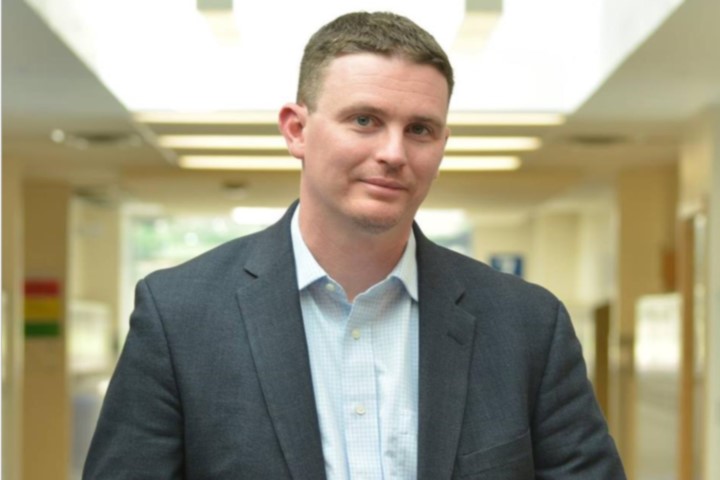Kevin Hickerson, president of the Fairfax, Virginia teachers union, is urging state lawmakers to focus on restorative justice, rather than additional security measures, to keep students safe in schools.


Kevin Hickerson, president of the Fairfax Education Association in Virginia is urging state lawmakers to focus on restorative justice, rather than additional security measures, to keep students safe in schools.
The high school special education teacher recalled in a recent column for The Virginian-Pilot how he identified a troubled student at his school years ago, and how officials “challenged him to aspire to more than just becoming another statistic.”
“It was a genuine rescue operation, and I’m delighted to say that I ran into Travis recently,” Hickerson wrote. “He’s now a college student who will also be a college graduate soon, and it wouldn’t have been possible without the right support system.”
Virginia’s House Select Committee on School Safety is working to recommend ways schools can increase safety in the wake of the Parkland, Florida school shooting, and Hickerson believes the lessons he learned from his former student’s experience are important.
Hickerson wrote:
The best solutions won’t be found by just further locking down our school buildings and adding more resource officers; that will mostly further a bunker-like environment and mentality. Instead, we must address the underlying causes of violent episodes in our schools — bullying, trauma experienced by students outside of school, the shortage of support professionals in schools, discrimination and other factors. …
Schools work best for everyone — and the chances of violence in them are greatly reduced — when relationships between staff and students, and among students themselves, are built on respect and collaboration. Restorative justice discipline policies and the teaching of conflict resolution are important factors in creating this kind of positive school climate.
The Fairfax Education Association president also called for discussions to focus on “common-sense ways to reduce” the impact of guns in schools.
Hickerson’s perspective aligns with union policies that typically advocate for increased manpower and spending in schools, while others argue schools could use existing resources more efficiently to produce better outcomes.
Regardless, the influence of adults on students, as illustrated by Hickerson’s experience and countless others, can be profound. Researchers with the Institute for Advanced Studies in Culture examined character education programs in a wide variety of schools, and summarized the findings in “The Content of Their Character.”
“What these case studies (in high schools across the U.S.) … consistently show is the importance of informal articulation of a moral culture through the example of teachers and other adults in the school community,” wrote editors James Davison Hunter and Ryan S. Olson.
Educators can encourage students to follow their example through lessons like “The Virtue of Friendliness and Civility” from the Jubilee Centre for Character and Virtues.
A focus on helping students develop virtues like friendliness and civility not only supports the kind of school culture that draws troubles students in, rather than cast them out, it provides a means for students to disagree respectfully without resorting to violence.
“Those who have strengthened this virtue make particularly sociable and personable companions,” according to the lesson. “When called to oppose or criticize others, this is done with flair and gentleness. They are able to be open-minded and tolerant of others, but can challenge in non-confrontational or non-aggressive ways when words and deeds are morally unacceptable.”
For further reading on CultureFeed